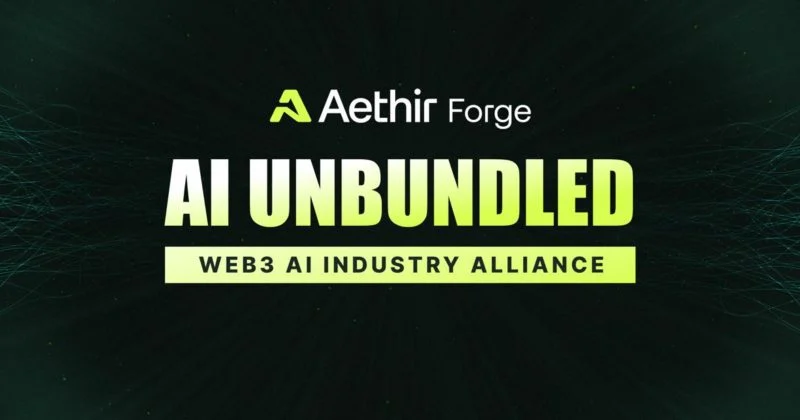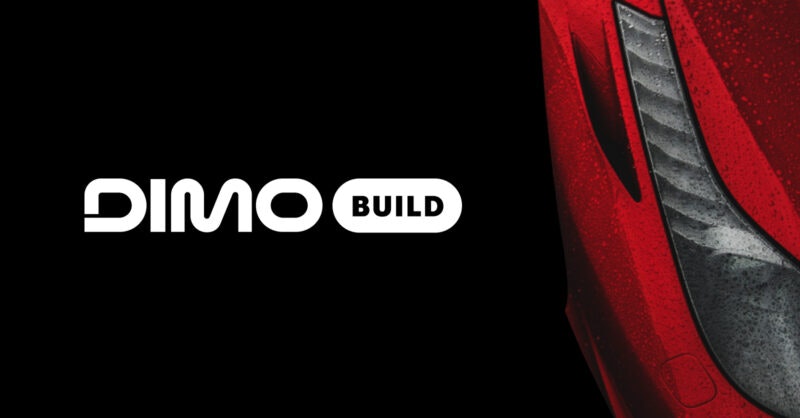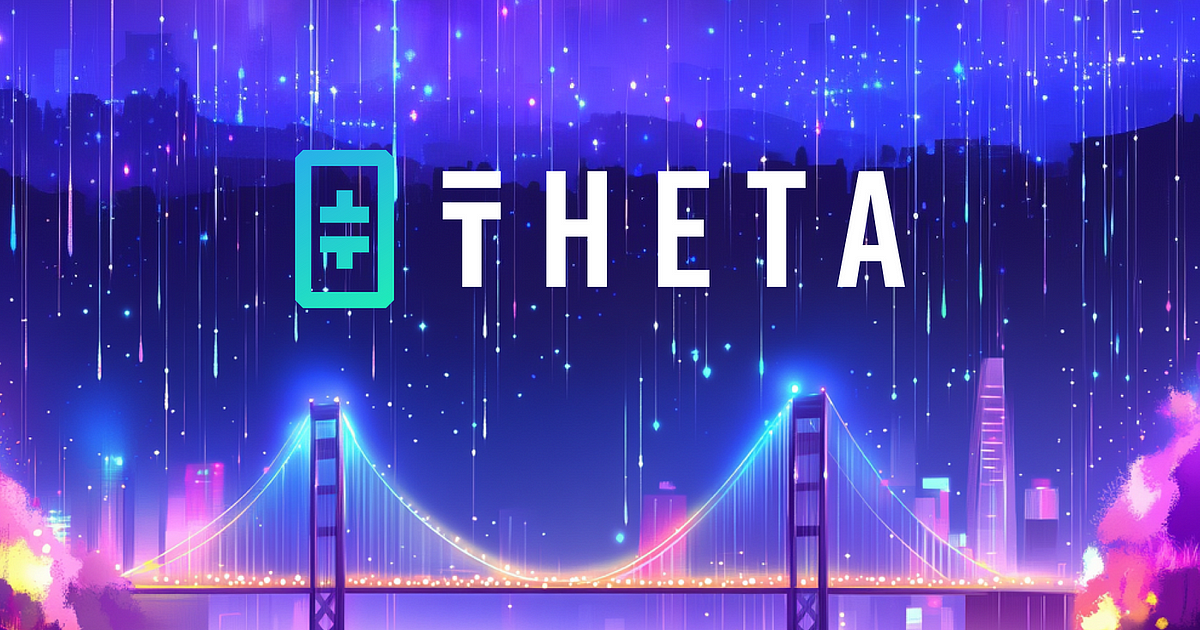Latest DePIN News

22 days ago
Solana DEX Landscape Faces Major Shakeup as Competitors Emerge
The decentralized exchange (DEX) landscape on Solana is experiencing significant changes, with Raydium's long-standing dominance being challenged by emerging competitors. As of April 20, 2025, Raydium still holds the largest share of DEX trading volume at 31%, but this marks a steep decline from its peak of 63% earlier in the year. New platforms like Pumpfun, Orca, and SolFi are rapidly gaining traction, indicating a shift towards a more competitive environment. Pumpfun, in particular, has made a remarkable entrance, capturing 19% of the DEX volume just weeks after its launch, showcasing the potential for innovation within the Solana ecosystem.
Pumpfun's success can be attributed to its hybrid model, combining a memecoin-focused launchpad with a high-speed automated market maker (AMM). This dual functionality has attracted retail interest and provided efficient liquidity, positioning Pumpfun as a formidable player in the DEX space. However, the sustainability of its growth remains uncertain as it faces the challenge of retaining liquidity providers and attracting serious traders in a volatile market. Meanwhile, Orca and SolFi are vying for dominance in key trading pairs, with Orca slightly leading in the SOL-USD market, highlighting the competitive nature of decentralized exchanges beyond the memecoin frenzy.
Despite Raydium's declining market share, it still maintains a significant presence in the Solana DEX ecosystem. The platform must adapt to modern trading demands and innovate to retain its user base. The evolving DEX landscape presents both challenges and opportunities, with new protocols emerging and existing players striving to enhance their offerings. As the competition intensifies, the next few months will be crucial in determining whether a few dominant players will emerge or if the multi-DEX ecosystem will continue to thrive, fostering specialization and innovation in the Solana DeFi space.

23 days ago
SEC Settlement with Nova Labs Over Helium Network Dispute
SEC Settlement with Nova Labs Over Helium Network Dispute
The US Securities and Exchange Commission (SEC) recently settled a lawsuit with Nova Labs, the developer of the decentralized wireless network Helium. The agreement involved the dismissal of allegations regarding the issuance of unregistered securities and a $200,000 civil penalty. The lawsuit, filed in January 2025 during former Chair Gary Gensler's tenure, marked one of the SEC's final enforcement actions against a cryptocurrency developer before his departure. The settlement, which includes a dismissal with prejudice, signifies that Nova Labs cannot face similar charges related to the issuance of its native token Helium (HNT) in 2019. The company clarified in an April 10 blog post that the distribution of HNT, IOT, and MOBILE tokens through the Helium Network is not considered securities, as confirmed by the outcome of the settlement.
Nova Labs also agreed to pay the SEC $200,000 to settle civil securities fraud charges without admitting or denying wrongdoing. This development highlights the evolving regulatory landscape in the crypto industry and the implications for blockchain developers and token issuers.

23 days ago
AI Unbundled: Advancing AI Innovation in Web3
AI Unbundled: Advancing AI Innovation in Web3
Aethir, a pioneer in decentralized cloud infrastructure for AI and gaming, has launched 'AI Unbundled,' a new industry alliance aimed at advancing artificial intelligence innovation within the web3 ecosystem. The initiative aims to streamline access to critical infrastructure for AI development, providing AI startups with funding, access to decentralized resources, and opportunities for collaboration through co-branded events. Through AI Unbundled, AI builders can tap into high-performance, cost-efficient infrastructure crucial for training and deploying advanced models.
The alliance, led by Aethir, brings together key decentralized infrastructure providers, blockchain networks, and investment firms such as 0G Labs, Biconomy, Polyhedra, Oasis Protocol Foundation, and more. AI startups can benefit from joint grant funding, subsidized access to decentralized GPU infrastructure, and access to tools like ERC-7857 for securing AI agents. The program also includes industry events, workshops, hackathons, and shared resource hubs for ecosystem introductions and technical mentorship.

23 days ago
AI: The Next Frontier in Sports Fandom
Artificial intelligence (AI) is making significant inroads into various industries, but according to Mitch Liu, CEO of Theta Labs, the sports fandom sector represents a particularly promising frontier. Unlike other fields where AI primarily automates tasks, sports offer a unique opportunity for AI to enhance the fan experience. With structured data such as statistics, schedules, and performance metrics, AI can analyze and present information in ways that resonate with fans. The cyclical nature of sports seasons allows for continuous data collection and feature testing, making it an ideal environment for AI integration.
Recent studies indicate that AI is already transforming the sports landscape through improved analytics and personalized fan interactions. For instance, the NFL's Digital Athlete program utilizes machine learning to assess player data and predict injury risks, which not only safeguards athletes but also enriches fans' understanding of the game. Additionally, NHL teams like the Vegas Golden Knights and New Jersey Devils have partnered with Theta Labs to create AI-powered chatbots that assist fans with inquiries about games, tickets, and team news. These innovations are enhancing the fan experience by providing timely, accurate information through interactive platforms.
The potential for AI in sports extends beyond traditional leagues to esports, where digitally native environments offer even greater opportunities for engagement. AI can facilitate hyper-personalized experiences, catering to both casual and dedicated fans by providing tailored insights based on real-time game data. However, sports organizations must implement these technologies thoughtfully, ensuring they augment rather than replace the core emotional elements of fandom. As AI continues to evolve, the sports industry stands at the cusp of a transformative era, with the potential to redefine how fans interact with their favorite teams and enhance the overall experience of sports consumption.

a month ago
Helium (HNT) Shows Signs of Bullish Trend Amid Market Volatility
Helium (HNT) has recently shown signs of a potential bullish trend, despite experiencing a retracement of nearly 24% from its local high of $4.5. On April 12, HNT broke through a significant resistance level at $3.4, suggesting an end to the downtrend that had persisted since the end of January. This bullish structure indicates that Helium bulls are attempting to establish an upward trajectory, although the market remains sensitive to broader cryptocurrency movements, particularly those of Bitcoin (BTC).
Currently, HNT is facing crucial support levels at $3 and $2.25, which could come into play due to two primary factors. First, the volatility surrounding Bitcoin poses a risk; if BTC falls below $83k, it could trigger widespread selling across the market, negatively impacting HNT. Secondly, the buying pressure for HNT has not been overwhelming, as indicated by the On-Balance Volume (OBV), which has struggled to surpass its February highs. A sustained uptrend in the OBV could signal a stronger rally for Helium in the near future.
On the 4-hour chart, the Relative Strength Index (RSI) indicates a slowdown in momentum over the past week, with the price action revealing resistance at the bearish breaker block around $3.7. As of now, HNT is trading near the 50% retracement level, with the potential to bounce back above $3.7, contingent on increased buying pressure. However, if Bitcoin drops below $83k, the short-term outlook for Helium could turn bearish, prompting traders to consider selling opportunities targeting a retracement to the $2.75-$3 range.

a month ago
DIMO Unveils Enhanced Developer Console with New Features and Decentralization Focus
DIMO has recently announced an exciting update to its Developer Console, marking a significant evolution since its initial launch on August 8, 2024. This update, known as DIMO Build, not only refreshes the branding with a new visual identity but also enhances the user experience by providing greater freedom and flexibility for developers. The Console now features a user-centric design that aligns with future expansion projects, including webhooks and low-code tools, ensuring that developers can build with less distraction and more focus on their projects.
One of the standout features of the new Console is the integration of social logins, which streamlines operations by consolidating login processes directly with DIMO Auth Servers. This update includes the addition of Apple logins, catering to users of the DIMO Mobile app. Furthermore, the login flow has been re-engineered to allow users to opt for email OTP login if they encounter compatibility issues with passkeys. This flexibility is aimed at reducing friction in the user experience, allowing developers to spend less time on signing transactions and more on building.
In addition to these enhancements, DIMO has embraced decentralization by integrating developer license information directly into the Identity API, mapping it to on-chain data. This shift eliminates reliance on off-chain databases, promoting transparency and reducing discrepancies. The updated Console also introduces a comprehensive vehicle list feature, providing insights into license details, including on-chain vehicle IDs. To support developers further, DIMO has established a dedicated support pipeline, ensuring that developers can easily connect with the engineering team behind the Console. Overall, these updates signify DIMO's commitment to fostering a more open and efficient development environment in the decentralized space.

a month ago
Stanford's AI Research Lab Partners with Theta EdgeCloud for Enhanced Research
Stanford Engineering Assistant Professor Ellen Vitercik's AI research lab is set to leverage Theta EdgeCloud's hybrid cloud infrastructure to enhance its research in discrete optimization and algorithmic reasoning. This collaboration will enable the lab to utilize EdgeCloud's decentralized GPU, which offers scalable and high-performance computing power at a competitive cost. The integration of this technology is expected to significantly accelerate the training of AI models and facilitate advanced research initiatives. Other prominent academic institutions, such as Seoul National University, KAIST, and the University of Oregon, are also utilizing EdgeCloud's infrastructure to boost their AI research productivity.
Ellen Vitercik specializes in machine learning, algorithmic reasoning, and the intersection of computation and economics. Her research lab is focused on several key areas, including the application of large language models (LLMs) for optimization, algorithmic content selection, and the generalization of clustering algorithms across various dataset sizes. By employing Theta EdgeCloud's resources, the lab aims to explore how AI can enhance decision-making processes in economic contexts, such as pricing strategies and targeted marketing.
Theta EdgeCloud's hybrid GPU infrastructure is designed to provide on-demand computing power that is both scalable and cost-effective, making it an ideal solution for academic research. The collaboration with Vitercik's lab exemplifies the growing trend of integrating advanced cloud computing technologies into academic research, particularly in the field of AI. This partnership not only promises to advance Vitercik's research objectives but also contributes to the broader landscape of AI research across multiple institutions worldwide.

a month ago
Navigating the Regulatory Landscape for DePIN in the U.S.
As the Decentralized Physical Infrastructure Networks (DePIN) sector gains traction in the cryptocurrency landscape, a critical question arises regarding its position within the U.S. regulatory framework. Current congressional legislation primarily addresses digital assets in a broad sense, encompassing stablecoins, tokens, and market infrastructure. However, the implications for DePIN are profound, as these policies will influence how DePIN projects secure funding, incentivize contributors, and deliver real-world services. Notably, legislation such as the STABLE Act and the GENIUS Act could significantly impact the stablecoin ecosystem that many DePIN projects rely on, potentially steering them towards more centralized options.
The FIT21 Act, which classifies tokens based on their decentralization and utility, is particularly relevant for DePIN. Tokens like $IOTX (IoTeX) serve as crucial infrastructure enablers, rewarding users and validating data. If classified as securities, these tokens could face stringent regulations that limit their exchange listings and user access. Additionally, the Digital Asset Market Structure Act introduces compliance requirements that may burden DePIN projects, especially those interacting with real-world payments. These developments highlight the urgent need for clarity in the regulatory landscape to foster innovation within the DePIN sector.
Advocacy efforts led by IoTeX and the Blockchain Association are pivotal in ensuring DePIN's recognition as legitimate infrastructure rather than mere financial speculation. Their recent engagement with congressional offices aims to educate lawmakers on the real-world applications of DePIN, emphasizing the need for supportive regulations. As the U.S. navigates this evolving landscape, it faces a choice: to lead in infrastructure innovation or risk losing it to other nations. With continued advocacy, DePIN can secure its place as a vital component of the national infrastructure narrative, paving the way for a decentralized future that benefits society as a whole.

a month ago
Solana's SOL Token Faces Challenges but Shows Signs of Recovery
Solana's native token SOL has recently faced challenges in maintaining its bullish momentum after peaking at $134 on April 14. Currently, SOL is trading 57% below its all-time high, primarily due to a notable decline in decentralized application (DApp) activity. However, analysts suggest that the altcoin's rally may not be over yet, citing a significant increase in deposits on the Solana network as a potential catalyst for short-term price recovery. With a total value locked (TVL) of $6.9 billion, Solana has positioned itself as the second-largest blockchain by TVL, outperforming competitors like Tron and Base in recent weeks.
In addition to its impressive TVL, Solana has reclaimed the top spot in decentralized exchange (DEX) volumes, surpassing Ethereum layer-2 solutions. In the week ending April 16, trading activity on Solana DApps reached $15.8 billion, exceeding the combined volume of Ethereum scaling solutions by over 50%. This surge was supported by notable increases in trading volumes on platforms such as Pump-fun and Raydium, while major Ethereum DApps like Uniswap and Curve Finance experienced declines. Furthermore, other DApps on Solana, such as Ondo Finance and Exponent, have also shown substantial growth in their total value locked, indicating a broader trend of increasing activity on the network.
Looking ahead, analysts are optimistic about the potential approval of a Solana spot exchange-traded fund (ETF) in the United States by 2025. However, expectations for significant inflows remain tempered due to a general lack of institutional interest and the recent underperformance of similar Ethereum ETF products. As investors await the results of a full audit of US federal agencies' crypto holdings, the future of SOL's price remains uncertain. Without external catalysts to attract new participants to the crypto ecosystem, the increase in TVL and DEX market share alone may not be sufficient to drive SOL's price to previous highs, such as the $180 level seen 45 days ago.

a month ago
Crypto Market Declines as XYO Launches New L1 and Everclear Goes Live
In the latest crypto news, the market is experiencing a downturn, with the global cryptocurrency market capitalization falling by 1.6% to $2.79 trillion. Daily trading volumes have also decreased to $86 billion, indicating a sluggish trading environment. Among the top 100 cryptocurrencies, only a few have seen gains, with Story (IP) leading the way with a 7.1% increase, while XDC Network (XDC) suffered the most significant drop at 6.9%. Bitcoin (BTC) remains relatively stable, appreciating by 0.7%, while Ethereum (ETH) and other major coins like Dogecoin (DOGE) and TRON (TRX) are also down, reflecting the overall bearish sentiment in the market.
In a significant development, XYO has announced its migration from the Ethereum L2 ecosystem to its own Layer 1 (L1) blockchain focused on Decentralized Physical Infrastructure Networks (DePIN). This move comes in response to the need for a blockchain that can efficiently handle large volumes of real-time data. XYO is introducing a new consensus mechanism called Proof of Perfect, which aims to enhance transaction processing efficiency by allowing nodes to focus on recent transactions while archiving older data. Additionally, XYO is launching a new utility token, XL1, which will work alongside the original XYO token to support scalable network operations.
Furthermore, Everclear, a cross-chain clearing and settlement protocol, has successfully launched its mainnet, offering zero-fee rebalancing and expanding support to Solana and other chains. The protocol aims to streamline digital asset transactions across multiple chains, similar to how Visa and SWIFT revolutionized traditional banking. In another notable announcement, UFC CEO Dana White has joined blockchain firm VeChain as an advisor, bringing his expertise in brand expansion and fan engagement to help promote blockchain adoption in mainstream markets. This collaboration is expected to enhance VeChain's sustainability initiatives and increase awareness of blockchain technology in sports communities.
Signup for latest DePIN news and updates